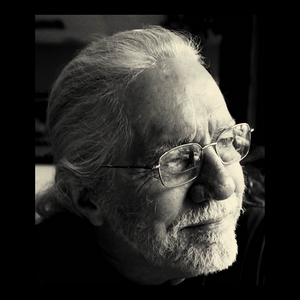*
You may have guessed that I am a progressive. And although I may wave the flag and declare my affection for the founding fathers, I do so in a way that must be carefully qualified. Neither the Magna Carta nor the Mayflower Compact, nor the Declaration of Independence, nor the US Constitution, nor the Bill of Rights, nor even Age of Reason are sacred writs. Each of these reflects the age in which it was authored, and the failures of each respective age. For all of their many virtues, these manuscripts are carriers of the viruses of slavery, racial bigotry, sexual oppression, aristocracy, conquest and subjugation, and religious dogma. But the thinking behind each of these documents is worthy of honor; I insist upon drawing a distinction between innovate critical thinking and the fruits of that thought from any particular age.
Let me also confess that I am a capitalist. More specifically, I believe in free-market economics, provided that a framework is present to ensure fair competition for resources. I believe that we need a basic understanding of economics in order to apply critical thinking to political problems with any positive effect.
The historical relationship between economics and political philosophy is a close one. In fact, the study of economics was not regarded as a separate entity until Adam Smith differentiated it in Wealth Of Nations. Published in 1776, Wealth describes a consumption-centric system controlled by an invisible hand of competition that facilitates economic growth. Selfish motives, in effect, create a benevolent whole.
This was
the state of economic philosophy into which the new republic of the
*
One could
easily imagine that, given the rational bent of our founding fathers, there
would be widespread popular support for critical thinking in
Religious faith is sometimes seen in conflict with critical thought, and it may certainly be a barrier. Among the majority of practicing Christians, the conflict may not be much of an issue; but among fundamentalists even today, the literal authority of the sacred scripts trumps the empiricism of observation and logic. This conflict is often played out in our classroom, even in public schools. There are those who would include creationism in science curricula, proving that the conflict between faith and reason is alive and well today.
The conflict runs deep, and the religious right has figured out that critical thinking, as a discipline, is a threat to traditional Christian teachings. The platform of the Texas Republican party of 2012 reflects this threat, explicitly stating, "We oppose the teaching of Higher Order Thinking Skills (HOTS) (values clarification), critical thinking skills and similar programs, which focus on behavior modification and have the purpose of challenging the student's fixed beliefs and undermining parental authority."
Big Money may have an interest in suppressing critical thinking as well. Any tradition protects itself by thwarting any challenges that might threaten it, and institutional wealth is no exception. Banks and corporations can overtly support political candidates and causes today, and while financial support is scattered broadly across the spectrum as a hedge, most of it lands in the hands of conservatives. Most of this money goes toward protecting the status quo, and a little of it gets funneled into explicitly opposing the instruction of critical-thinking skills.
*
So critical thinking is under attack today, even in the context of the institution most adept at equipping our kids to think, and the attack implicitly extends to critical thinking as a national value as well. If schools aren't permitted to facilitate the development of reasoning skills, where are we supposed to pick them up? From parents who were denied the development of reasoning skills in their own education? The very parents who prefer that children be taught what to think rather than how to think?
The restoration of critical thinking as a value within American culture is an essential starting point if any improvement is to be brought about in the effectiveness and efficiency of our institutions. This applies most fundamentally to the institutions of government, which themselves are subject to manipulative forces seeking political advantage at the expense of others. But a critical-thinking populace would be well equipped to advance the cause of American democracy by evaluating public policies and reforming them to better serve the people. Part two of An Impractical Guide shows through example what form such an evaluation might take.
(Note: You can view every article as one long page if you sign up as an Advocate Member, or higher).




